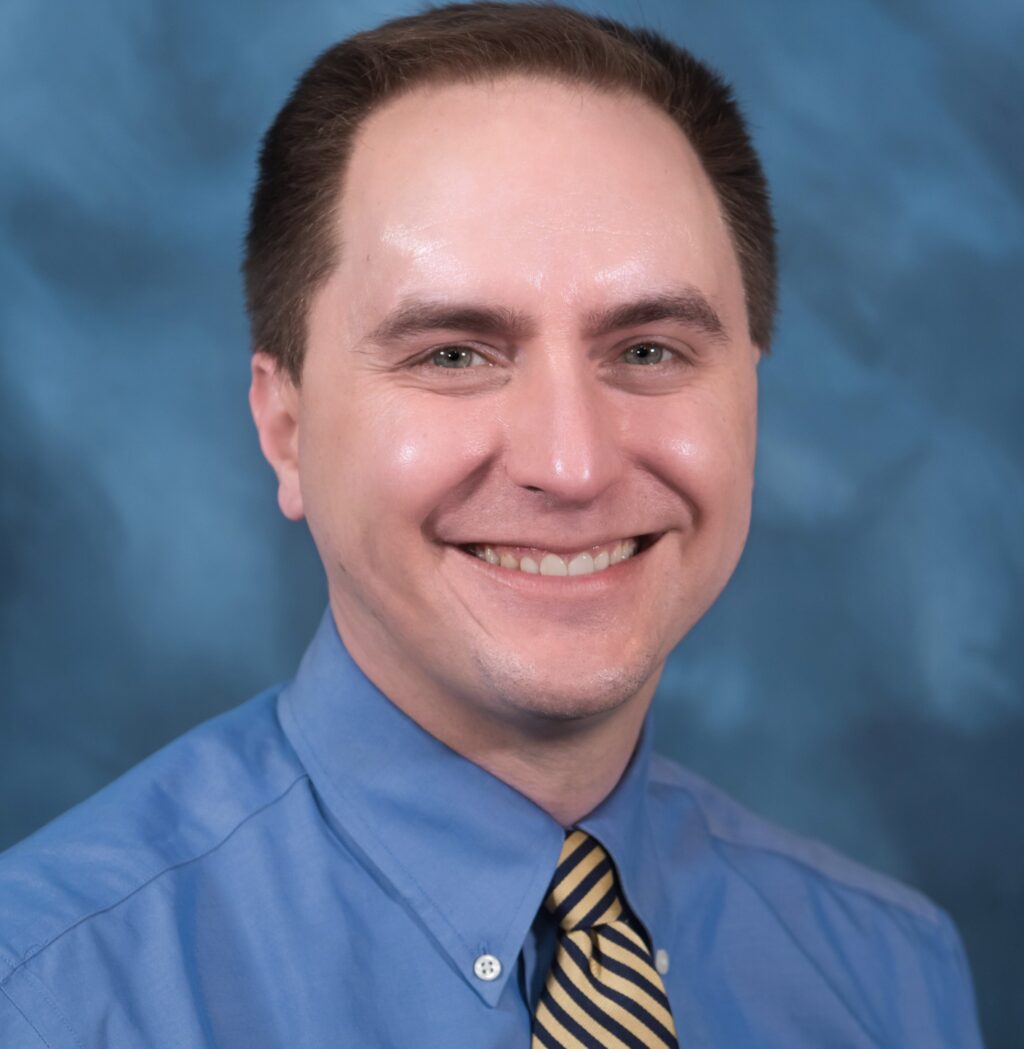Written by Margaret M. Burke
Photography courtesy of Middlesex Health
Did you fly to an exotic vacation destination or visit friends and family this past summer? When was the last time you sent or received a long-distance package with a quick turnaround? Ever thought about what it takes to assure you have a healthy pilot at the controls to make all this happen? Middlesex Health has a longstanding history of over 20 years helping to keep the skies safe by providing aviation medical exams for pilots.
“This is one of those behind-the-scenes moments that is underappreciated in terms of keeping the skies safe,” said Dr. Matthew Lundquist, medical director of Middlesex Health’s Occupational & Environmental Medicine Department and Employee Health Services since 2011. “We’re seeing pilots regularly and certifying the ones who are healthy enough to fly. If there are medical concerns that prevent pilots from flying, we try to help them find the care they need and notify the FAA.”
Dr. Lundquist has been an aviation medical examiner (AME) since 2016. He is the only doctor in the health system approved by the Federal Aviation Administration (FAA) to provide this unique service. A pilot may choose any currently approved AME to perform their exam. Because of the required frequency of the exams and the need to coordinate with their own physicians, pilots generally choose an AME close to home. Roughly one-third of the patients Dr. Lundquist sees in clinical practice are pilots needing aviation exams.
What It Takes to Become an AME
Aviation medical examiners must be a physician, having either a Doctor of Medicine or Doctor of Osteopathy degree. Physician assistants, nurse practitioners or advanced practice nurses are not permitted by the FAA to be AMEs. Physicians who are FAA-approved AMEs often have a background in occupational medicine, although some practice internal, family or emergency medicine.
Dr. Lundquist explained that a physician can’t just decide this is a service they want to provide. It is the FAA that actually initiates the process by determining there is a need for an examiner in a given area. Then the FAA either seeks out physicians or a physician may submit their own name for consideration. The FAA must approve a physician candidate to attend AME training.
That training consists of a one-week, in-person instruction in Oklahoma City, Okla. The candidates learn the basics of aviation medicine and study the “Aviation Medical Examiner Guide,” the book of rules that defines what it means for a pilot to be medically fit to fly. The candidate must then pass a written exam to be certified as an AME.
Federal aviation regulations require a person to be at least 16-years old to operate an aircraft alone and 17-years old to obtain a private pilot’s certificate from a flight academy. Individuals as young as 14 years may operate a glider or balloon. The FAA categorizes pilots into three different classes according to the type of aircraft they fly:
- first-class (airline transportation pilots),
- second-class (commercial pilots) and
- third-class (recreational pilots).
An AME is permitted to perform exams for second- and third-class pilots only. After three years of demonstrating proficiency as an AME, a physician may be granted a “senior AME” designation by the FAA. Only senior AMEs may perform exams on first-class pilots. Dr. Lundquist was granted senior AME status in 2019.
Regional flight surgeons, “who you can think of as FAA-employed medical directors,” Dr. Lundquist said, oversee the activities of AMEs within their designated region. They also act as a real-time resources to the AME who can contact them for guidance when necessary. The FAA regularly audits the work of AMEs and provides them individual feedback in the form of a report card.
The AME Guide is updated monthly so an AME must keep current. AMEs recertify every three years to maintain their credentials. This may be in person or online but at least once every six years the recertification must take place in person. This requires attendance at a two-and-a-half-day seminar. Dr. Lundquist last completed an in-person recertification in August 2022 in Washington, D.C.
Coordination of Care
Aviation exams are performed under the authority of the FAA. Dr. Lundquist does not have the independent medical discretion he would otherwise have in most patient care situations. He must follow the rules laid out in the AME guide. If a pilot has a condition that needs further review by the FAA, then Dr. Lundquist cannot certify the pilot to fly even if the pilot’s own physician has given them the okay to do so. Dr. Lundquist would be required to “defer” the pilot’s certification decision to the FAA. However, Dr. Lundquist does work closely with the pilots’ treating physicians and provides his exam findings to them.
In the case of a deferral, the FAA will request additional information from the pilot’s own doctors in order to make a final decision on their fitness to fly. The pilot will receive a letter from the FAA outlining exactly what the pilot’s doctor needs to address in a return letter.
Conversely, Dr. Lundquist is a resource to treating providers who have patients who are or want to become pilots. If the provider discovers the patient has a certain condition, they may call Dr. Lundquist to see how that might impact the pilot’s certification. This coordination of care is good patient care plus it improves efficiency of the pilot certification process. It helps the treating physician to know what tests may need to be ordered or documentation provided so that the pilot has it completed before they even come to Dr. Lundquist for their aviation exam. It also helps the treating physician be aware of what medications may or may not be safe to prescribe to pilots.
A Rewarding Practice
Dr. Lundquist hails from Long Island, N.Y. He completed his undergraduate studies at Cornell University and attended medical school at the State University of New York at Stony Brook. While considering internal medicine residencies, he interviewed at Yale New Haven Hospital with a physician who happened to work in occupational medicine. This piqued his interest in the field. Occupational and environmental medicine (OEM) is a board-certified specialty of the American Board of Preventive Medicine.
“Occupational medicine physicians focus on workers. The worker is our patient,” Dr. Lundquist explained. “We deal with everything from ensuring someone is safe to begin work (pre-placement medical evaluations), that they remain safe while working and we handle workers’ compensation if someone gets hurt while working. For example, before asbestos was regulated, occupational medicine led the way in taking care of sick workers while advocating for regulations to prevent future exposures.”
In addition to aviation exams, occupational medicine also handles specialized exams for truck or school bus drivers and for police and firefighters to ensure they are medically fit to perform their jobs.
Dr. Lundquist was accepted into the Yale internal medicine residency; during his three years there, he completed two elective rotations in occupational medicine. That cemented his desire to pursue it as his specialty. He went on to obtain a Master’s Degree in Public Health and also complete a fellowship in occupational environmental medicine, all at Yale.
After completion of his medical training, Dr. Lundquist was hired by Middlesex Health, where he was introduced to aviation exams by his predecessor, Dr. Thomas Danyliw, who has since retired. Because Dr. Lundquist successfully completed his AME training, pilots were able to transition their aviation exam care without having to search out a new site.
Dr. Lundquist said he enjoys providing aviation exams for many reasons. “I know it really makes a difference in the day-to-day lives of anybody in this country that ever gets on an airplane. It also aligns with the core mission of occupational medicine. Safety in my field is paramount—keeping people safe while they work and making sure they are safe to work.”
Dr. Lundquist enjoys getting to know the pilots, learning their backgrounds (many are from the military) and how they got into flying. Because pilots must have aviation exams on a regularly scheduled basis, Dr. Lundquist is able to develop a continuity relationship with them that is different from many patients in occupational medicine who may only be seen a single time. Plus, the pilots share great stories about their travels!
Dr. Lundquist said that undergoing the training to perform aviation medical exams and his interactions with so many pilots over the years has really given him an idea about how safe air travel is. “It gives me an appreciation for the depth and skills of the pilots and enhances my confidence in the system,” he concluded.









More Stories
Jamie Shawver, D.O.: The Modern-Day Family Doctor
Leading in Urologic Oncology: Ryan Dorin, M.D., Works on Expanding Patient Care
UConn Health Stands at the Forefront of Comprehensive Sickle Cell Treatment in the U.S.